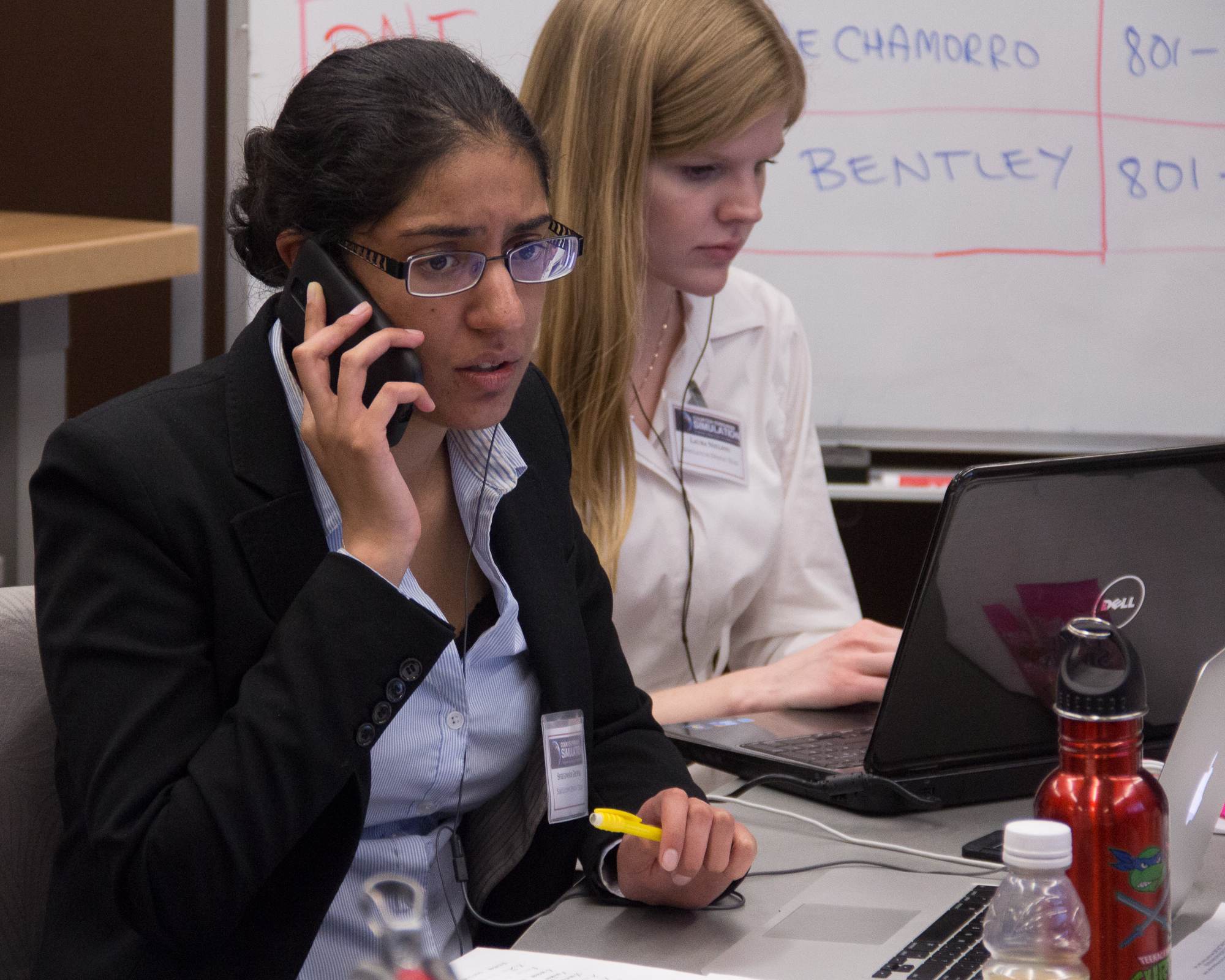It is 8:45 a.m. on what you had assumed was just another Friday morning, the problem is, it’s not just like every other Friday morning. Instead intelligence begins streaming in of an act of piracy within international waters. An American cargo ship has been hijacked, and it’s your job to decide what happens next. How do you respond, what do you do? And more importantly, what exactly are the legal ramifications of your decision? Time is of the essence. The lives of the entire crew aboard the vessel rest on your decision, and the press is waiting for an official statement.
If this sounds intense, that’s the point.
Co-Director of the Center for Global Justice, and professor in the S.J. Quinney College of Law, Amos Guiora has spent more than 30 years running counter-terrorism simulations featuring scenarios just like the one above.
The idea is to create a scenario as close to a real life terrorist attack as possible, and for students studying law at the University of Utah, the simulations provide a valuable learning tool.
“I’m a firm believer and advocate of what we call experiential learning,” Guiora said, stating that he believes simulations like the ones he runs in his Global Perspectives on Counter-Terrorism course are the best manifestation of that.
“These are very complex, rolling scenarios that are integrated with one another,” Guiora said. “They require students to make decisions, to learn to access information, assess that information, and engage in prioritization and time allocation, with an emphasis on leadership, teamwork, and advocacy.”
So what exactly goes into these simulations? Quite a bit actually, as Guiora explains, each set of simulations for his counter-terrorism course take an entire year to put together. Not only does this provide practical experience for his counter-terrorism course, but the actual year-long prep for the simulations is its own course, one offered to students who have already undergone the simulation.
“Students who have taken the simulation design course have been able to fully use that to their advantage when looking for employment, because they have clear way to differentiate themselves from their peer group,” Guiora said. “They’ve worked with me for a year to create a simulation, something other students from other law colleges don’t have access to.”
Each year’s simulation feature a set of interconnected terrorism scenarios as well as a complex series of decision making processes including a full press corps to whom statements must be made, and whose questions must be answered all in real time.
With each student taking on the role of a different counter-terrorism response team, including the Department of Defense among others, the scenarios may be well-crafted fakes, but the pressure and the experience is very real.
According to Guiora, the simulation portion of his counter-terrorism course is the only one like it in the nation, something he believes not only preps his students for the real thing, but also provides a true differentiation from their peers on the job market.
“One of the reasons I think that the course gets such an enthusiastic response from students is because, not only are they learning the law, but they are actively participating in these intense simulations,” Guiora said. “I think for law students, it gives them a real sense of decision making.”
Guiora, who spent 20 years undergoing and creating simulations for the Israel Defense Forces, brought all of that experience with him to American academia, with April 2015 marking the eighth year that he has run simulations here at the University of Utah.
Guiora believes that much of what the counter-terrorism and simulation prep courses teach his students give them a much better idea of how international law really works. It’s one thing to discuss the law, it’s another thing entirely to actively experience situations that teach how the law and counter-terrorism overlap, how international policy works, the importance of intelligence gathering, and ultimately the genuine difficulty of real-time, operational decision making.
The event, which is webcast each year, is watched by thousands across the country, and acts as a leading example of what Guiora refers to as “experiental learning,” that is a learning environment that extends beyond the theoretical assessment that exists in most classroom environments.
“I think that pedagogically it’s a unique experience and I think that at the law school we are at the forefront of experiential learning,” Guiora said.
For more information on the University Of Utah Center for Global Justice:
http://www.law.utah.edu/research/center-for-global-justice/

